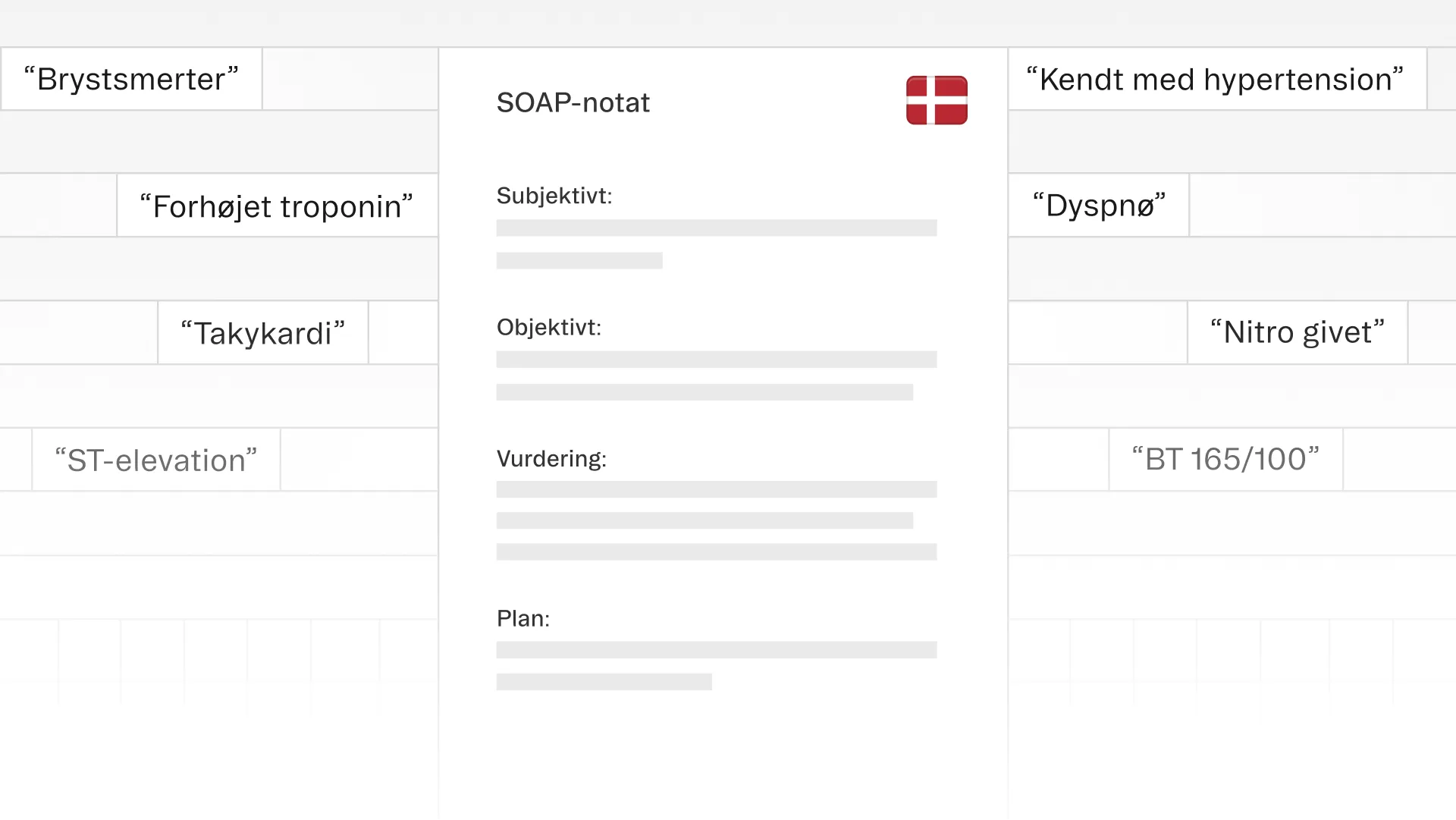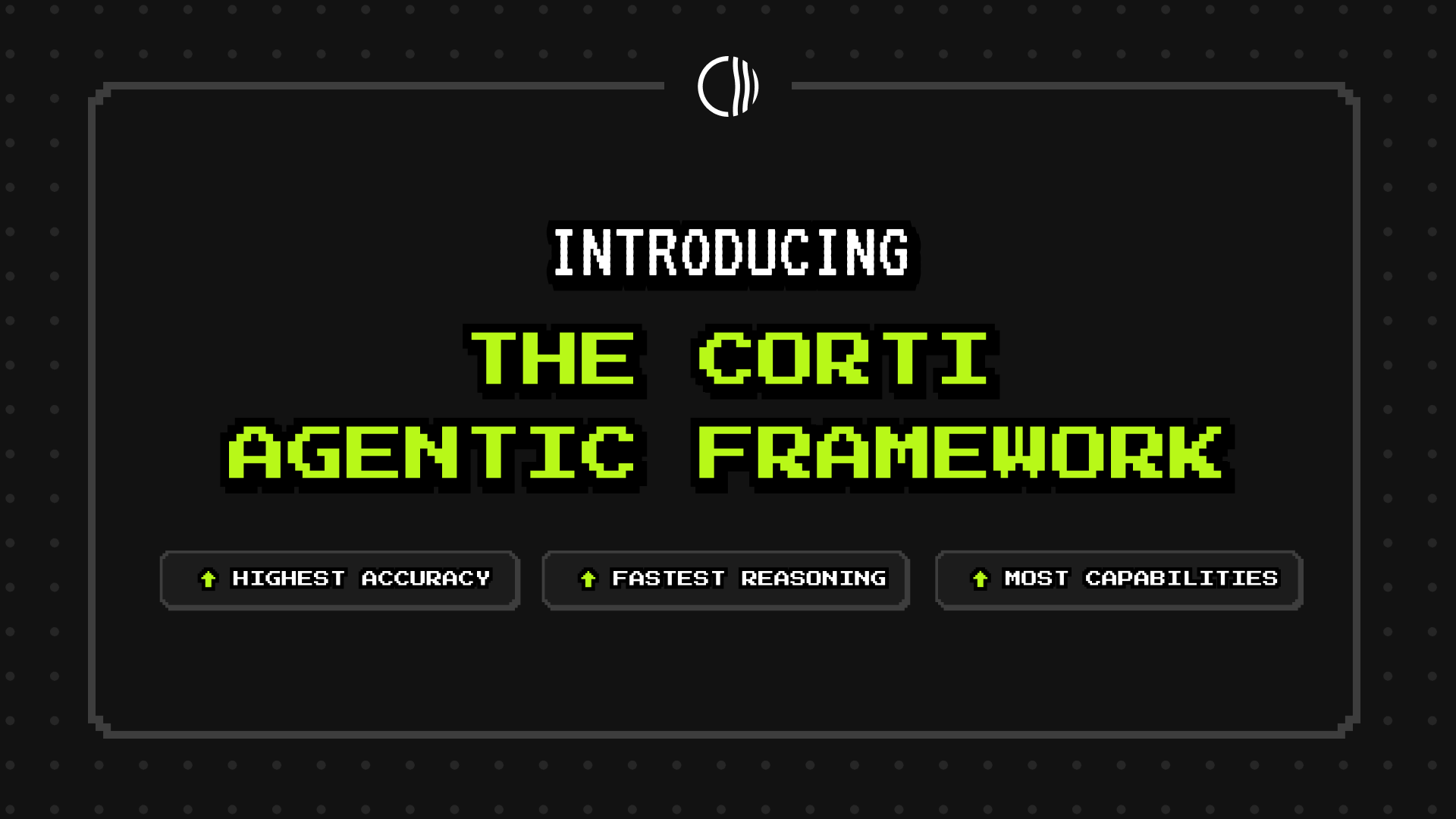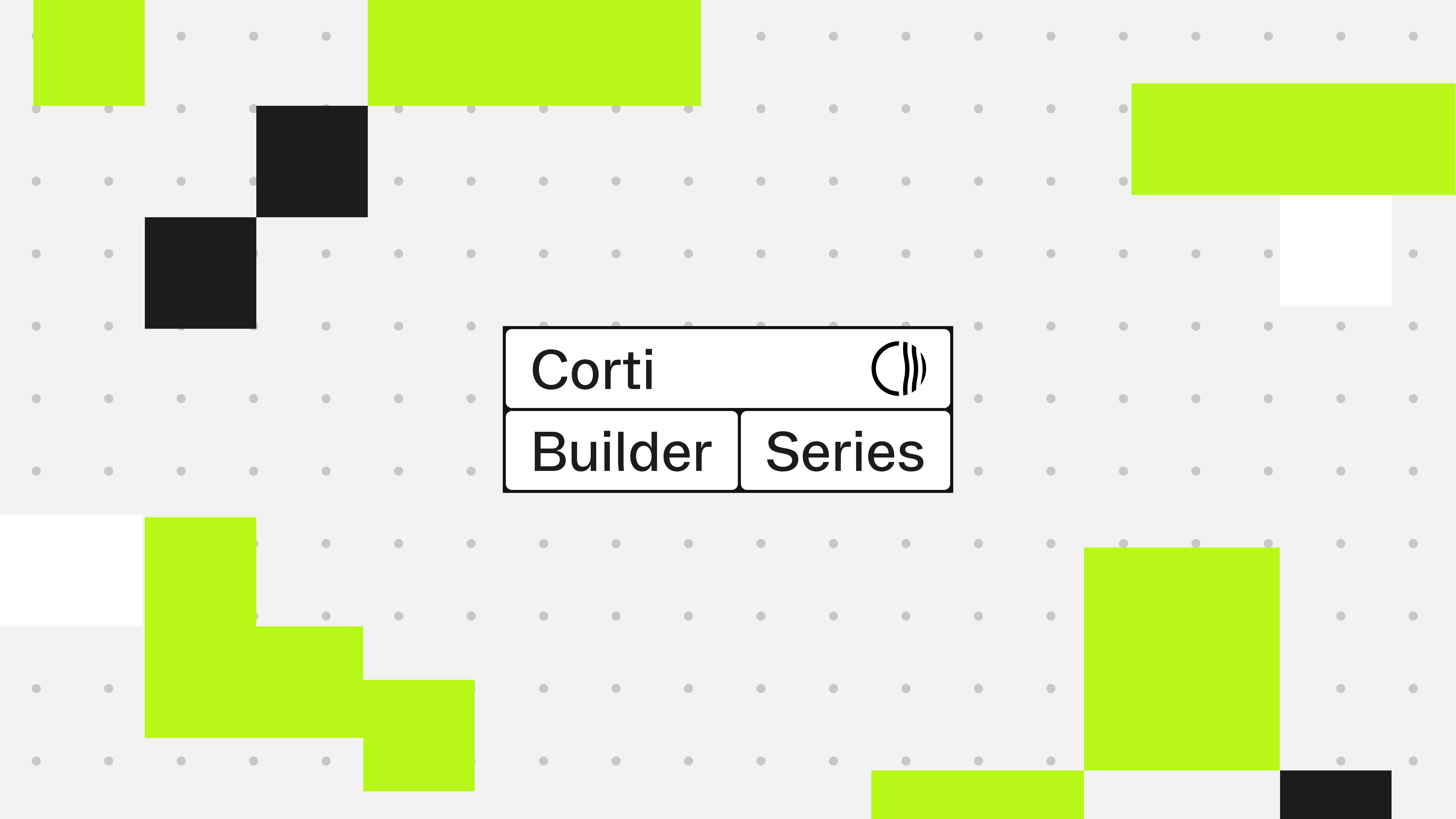Corti launches a clinical-grade Danish speech to text model raising the bar for medical ASR

TL;DR
- Corti has launched its clinical-grade Danish language model, a premier speech to text model designed specifically for Danish healthcare use cases.
- Developed and trained in Copenhagen, the model has been validated on nearly 160,000 medical terms collected from proprietary, public, and real-world clinical sources.
- The new model delivers a 31.7% improvement in Medical Term Recall (60% → 79%) and a 48.2% improvement in Word Error Rate (29% → 15%) compared to the prior generation Danish model.
- Rated Premier, this clinical-grade model is available now for both
/transcribeand/streamendpoints through the Corti API, powering a vast set of use cases across dictation, ambient scribing, and additional voice-powered AI applications and agentic systems. - Built for developers building in regulated healthcare environments who need accuracy, compliance, and local language understanding.
Developed in Denmark, built for Danish healthcare
Corti was founded in Copenhagen, shaped by Denmark’s culture of innovation, trust, and design. Our latest release, the most advanced Danish clinical-grade speech to text model on the market, marks a new benchmark for healthcare technology in the region.
Built in close collaboration with hospitals, universities, and product teams across Scandinavia, the model is finely tuned to the realities of Danish clinical communication. It handles background noise, overlapping dialogue, and the complexities of regional accents, compound terminology, and mixed-language usage common in real consultations.
Validated on a vocabulary of nearly 160,000 unique medical terms, the model delivers clinical-grade performance, enabling that enables developers to build accurate, compliant, and scalable solutions with confidence on the Corti platform.
What makes it clinical-grade
“Clinical-grade” means built for the real production environments. This requires a speech to text pipeline that meets the demands of healthcare documentation.
That standard rests on three principles:
- Domain specificity: Trained exclusively on medical data and terminology across specialties.
- Measured accuracy: Evaluated using Medical Term Recall (MTR), a benchmark designed to capture how precisely a model identifies and transcribes clinical entities.
- Workflow readiness: Engineered for compliance, security, and reliability in live healthcare environments.
Our development team here at Corti knows that healthcare isn’t just another domain, it’s a language of its own. We explored this challenge in 8 problems that make healthcare the world’s hardest language, where we break down why medical speech to textdemands a dedicated, clinical-grade approach.
Performance at a glance
Benchmark results
- +31.7% improvement in Medical Term Recall (60% → 79%)
- +48.2% improvement in Word Error Rate (29% → 15%)
General ASR systems can report low Word Error Rates on open datasets like Common Voice or CoRal, but those numbers vanish in medical contexts.
When faced with Danish healthcare terminology, terms like myokardieinfarkt, clopidogrel, or akut koronart syndrom, Corti’s model sustains accuracy where others fail.
Because in healthcare, it’s not enough to recognize words; the model has to recognize meaning, format outputs correctly, and encompass a vast vocabulary of medical terminology out of the box for our healthcare developers.
In fact as part of our ongoing development, Corti is partnered with the Alexandra Institute, a Danish research organization leading national efforts in speech technology through the CoRal initiative. Their contributions to open benchmarks and Danish speech data have strengthened both model training and evaluation, helping ensure that performance reflects the real challenges of Danish medical language. This collaboration reflects a shared commitment to building trustworthy, domain-specific AI made in Denmark, strengthening both the local research ecosystem and the tools available to healthcare developers working in Danish.
Built for developers, trusted by clinicians
The Danish (Premier) model is now available via Corti’s API across our speech to text endpoints:
/transcribefor structured note creation and reporting, including precise dictation./streamfor real-time clinical transcription and documentation, including for ambient scribing
Developers can use commands to enable voice-driven workflows, allowing clinicians to insert templates, navigate fields, and trigger actions hands-free. Improved punctuation and formatting automatically convert spoken cues into proper punctuation and ensure measurements, dates, and times appear in standardized form, making transcripts ready for immediate use in EHR systems.
Available now
The Danish (Premier) clinical-grade model is live today for all Corti customers and partners. This launch brings Danish into Corti’s growing family of clinical-grade languages, each one built to capture the nuances of human healthcare conversations and empower developers everywhere to build with confidence.
For full documentation, integration examples, or benchmark data, visit docs.corti.ai or book a scoping call with our technical activation team.
Corti was founded in Copenhagen, and our work continues here at the intersection of healthcare and AI. Denmark’s healthcare ecosystem, open, collaborative, and digitally mature, continues to inspire how we design our models.
This launch is as much about place as it is about progress. Our Danish roots have given us the proximity to understand the language, culture, and clinical reality behind every sentence.
We’re excited to see what Danish developers, clinicians, and innovators build with this new clinical-grade capability, from next-generation dictation tools to intelligent documentation assistants to full agentic systems.
Join our mission
We believe everyone should have access to medical expertise, no matter where they are.

.png)

